A GUIDE TO HIGHER EDUCATION

Takeyour educationtothenextlevel In association with
Why study at the Royal Academy of Dance?
Just a few reasons to further your dance education with the RAD…
Why Teach Dance?
At the Royal Academy of Dance, we understand the importance of having qualified, well-informed and inspirational dance teachers. For those considering a career in teaching, the RAD can help you make a difference and shape a future generation of dancers and dance teachers.
Motivate, Encourage and Inspire
Dance teachers are at the heart of what we do and with the RAD operating in over 85 countries with 36 international offices, and a worldwide
LEARN / TEACH / DANCE
RAD Graduates are in demand
Teaching is a highly transferable skill and our graduates have gone on to teach all over the world.
Professional membership
As a student you gain access to the professional membership body of the RAD which, in addition to a global support network, ensures you have a competitive advantage from day one.
Registered Teacher Status
Most of our students are eligible for registration as teachers with the RAD on completion of their programme.
membership of approximately 8,000 teachers, we are a well-established teacher training and education organisation. We have students from all around the world studying with us on universityvalidated and RAD programmes of study, with one of our programmes offered in nine different languages.
Royal Academy of Dance® is a charity registered in England and Wales No. 312826
Photo by Tim Cross
Visit our new London headquarters! Find out everything you need to know about studying with us by attending one of our Open days at our new building during 2022!
Find out more at www.royalacademyofdance.org/opendays
“I would tell anyone who is interested in studying at the RAD to go for it, as you will get an experience like no other.”
Learn to Teach
Our portfolio of certificate, diploma and degree programmes has been specifically designed to meet your immediate and future aspirations as a dance teacher and reflects our international reputation for excellence in dance teacher education.
• BA (Hons) Ballet Education
• BA (Hons) Dance Education*
• Postgraduate Certificate in Education: Dance Teaching (with Qualified Teacher Status)

• MA in Education (Dance Teaching)*
• Certificate in Ballet Teaching Studies*
• Diploma in Dance Teaching Studies*
• Professional Dancers’ Teaching Diploma
• Professional Dancers’ Postgraduate Teaching Certificate*
• Licentiate of the Royal Academy of Dance
* Distance Learning (some programmes may also include an intensive study period and/or on-site induction)
Find out more www.royalacademyofdance.org/study radprospectus.info
faculty@rad.org.uk
+44 (0)20 7326 8086
/RoyalAcademyofDance
@RADheadquarters
/royalacademyofdance
Royal Academy of Dance, 188 York Road, London, SW11 3JZ
LEARN / TEACH / DANCE
4

5 Who are Skills Jersey? 8 Higher Education Fair 11 Decisions, decisions, decisions... 12 Why choose higher education? 13 Application timeline 14 What happens on results day? 18 Advice for parents and guardians 19 Qualifications explained 22 The personal statement 24 How to choose where to go 26 How to choose a course 27 Studying in the UK 28 Higher Education Top Tips 33 Studying in Europe 34 European application information 35 Studying in the rest of the world? 39 Studying on-island 42 Higher & degree level apprenticeships 50 Civil Engineering HNC & B-ENG Apprenticeship 52 Distance and blended learning degrees 58 Budgeting and Student Finance 60 Thinking about a gap year? 62 Second thoughts on your plans? 63 Directory 64 CASE STUDIES Ciara Donnelly BSc Biological Anthropology 30 Josie Robins MChem Chemistry 31 Ailsa Leverington Film Production & Cinematography 32 Alexander Houzé Msc Architecture 36 Barbara Abreu Languages and Business Studies 37 Lorna Smyth M.D, Doctor of Medicine 38 Rebecca De Freitas Trainee English Solicitor 44 Rachel Corporate Administrator 46 Alex Heyes B-Eng Civil Engineering 51 CONTENTS made by EDITORIAL SKILLS JERSEY SALES CERI MILNER ceri@factory.je PUBLISHER BEN DAVIES ben@factory.je A GUIDE TO HIGHER EDUCATION in assoication with Disclaimer. All rights reserved. Any form of reproduction of Reach, in part or whole is strictly prohibited without the written consent of the publisher. Any views expressed may not be those of the publisher. All material, copy and artwork supplied is assumed to be copyright free unless otherwise advised. REACH IS PUBLISHED BY 70 BATH STREET ST HELIER JE2 4SU FACTORY IS A TRADING STYLE OF SIXBYNINE LTD, REGISTERED IN JERSEY NO. 89716 01534 811100 If it rings off, drop an email to HI@FACTORY.JE WWW.FACTORY.JE
We are ranked in the top 10 in the UK for graduates in employment and further study
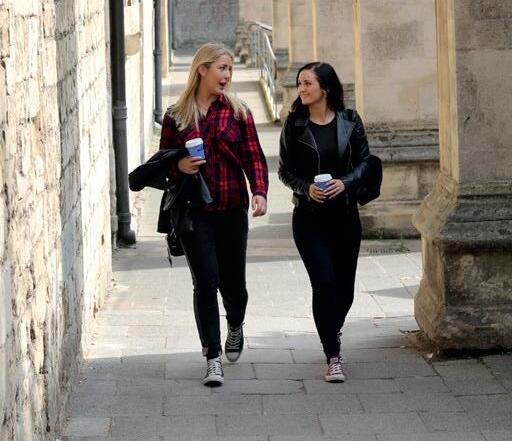


(Graduate Outcomes 2021, HESA)
Second in the UK for Quality Education
(University Impact Rankings 2021, Times Higher Education)
Top 100 University worldwide for our work in reducing inequalities
(University Impact Rankings 2020, Times Higher Education)

Top 10 Student Unions in the UK

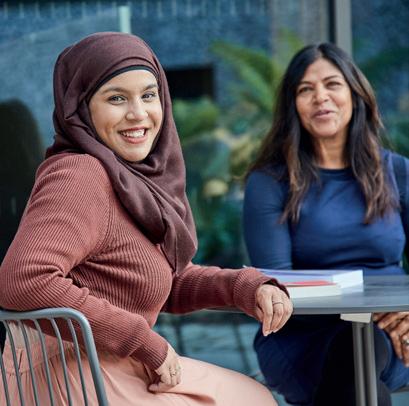
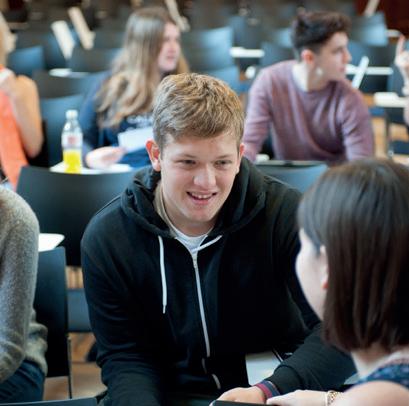
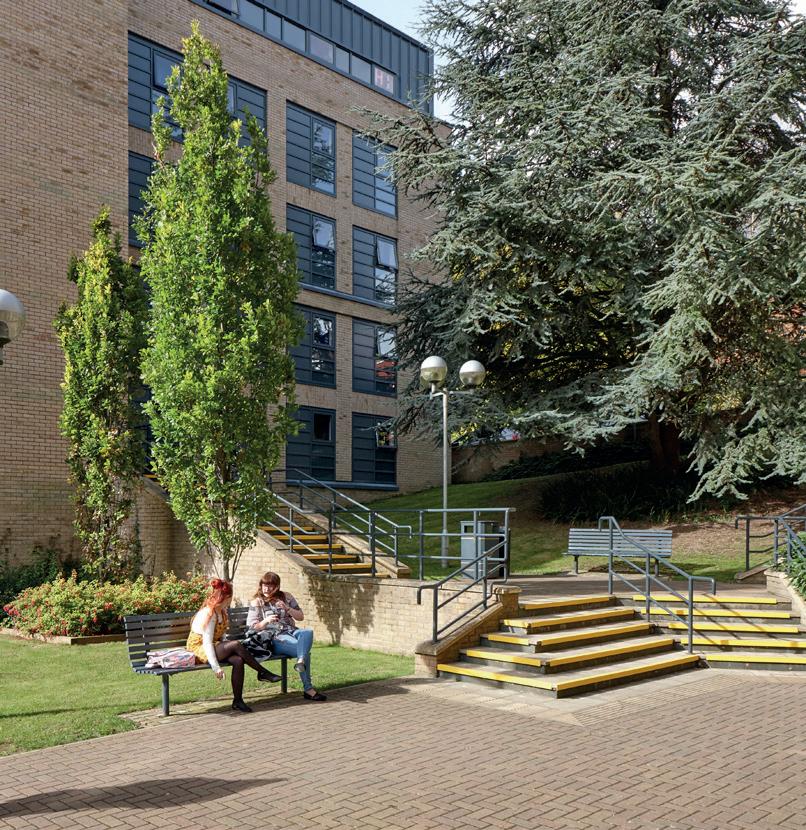


Find us on the Skills Jersey website from 14 March and come and chat to us at the HE Fair on Thursday 17 March. Check our website for opportunities to visit winchester.ac.uk/opendays Winchester is one of the top 5 safest university cities in England and Wales (Complete University Guide 2020)
Southampton Airport is just a 10-minute train journey away
Winchester Student Union (National Student Survey, 2021)
Skills Jersey, which includes Careers Guidance, Trident, Trackers, Skills Coaches and Student Finance, is part of the Children, Young People, Education and Skills Department. It is a centre of excellence with clear links connecting education and lifelong learners with industry. It offers;
Careers Guidance:
The Careers Guidance team offers free, confidential and impartial careers guidance to people of all ages including school pupils, 16+ students and adults.
Connect with Education:
Skills Jersey is the hub where industry and education can work together to benefit the local community. Offering links between schools, colleges, universities, industry and other education training providers.

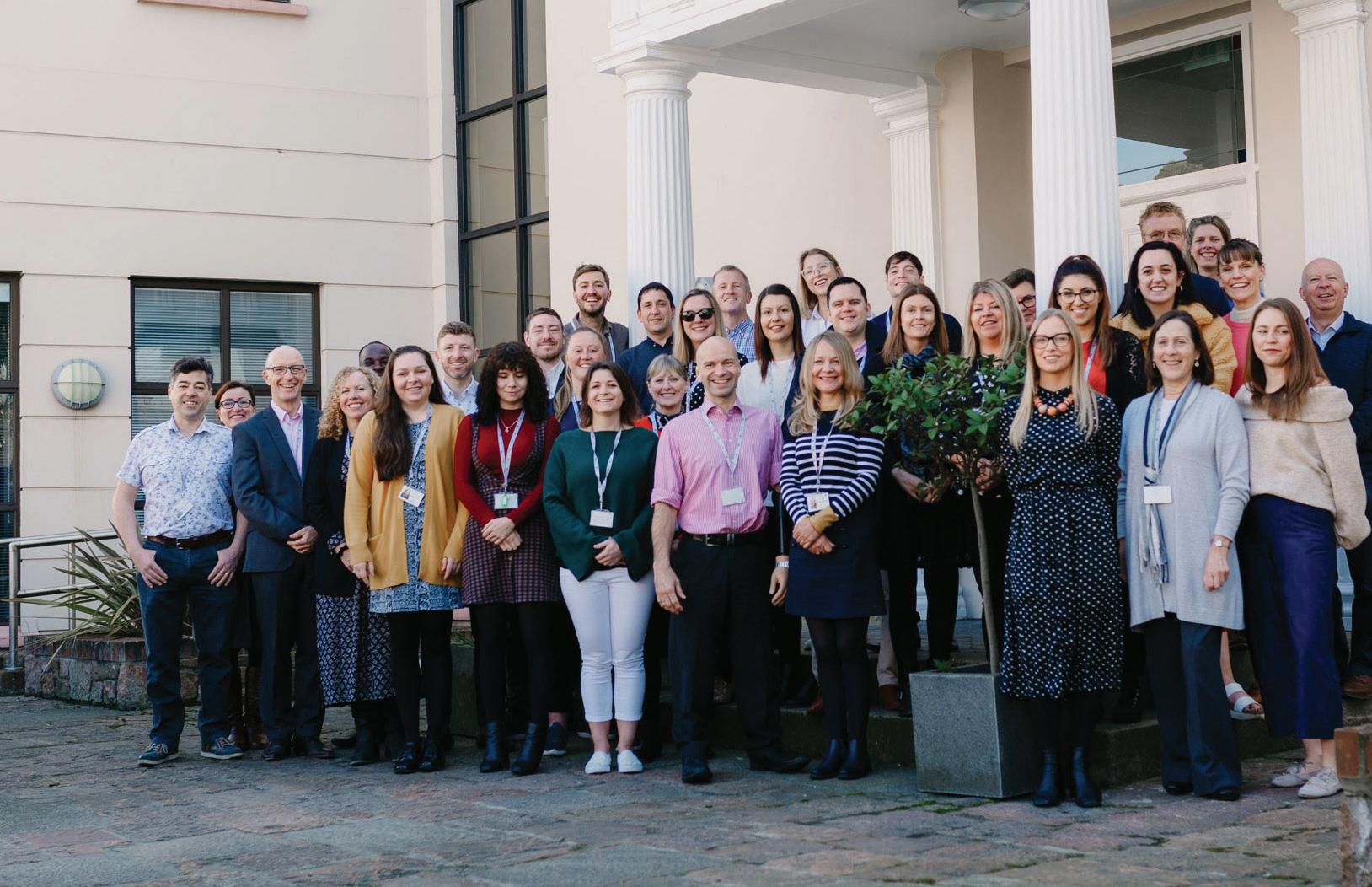
Learning through work:
Whether it is mentoring apprentices through employment and training or coordinating work placements and shadowing schemes, Skills Jersey supports Islanders to make informed decisions leading to their future employment.
8
Contact Skills Jersey for further information
skillsjersey@gov.je
01534 449440 |
| gov.je/skillsjersey

Find out more. Visit www.hope.ac.uk EXPAND YOUR THINKING MAKE YOURSELF AT HOPE Broaden your horizons in a place you really belong. Welcome to Liverpool Hope.
Nestled in the heart of the Hampshire countryside, University Centre Sparsholt is a leading provider of a range of undergraduate and postgraduate degree courses. With over 600 animals at the Animal Health and Welfare Research Centre, over 60 horses at the Equine Centre and a working farm across our 183 hectare campus, it is certainly an exciting place to study, grow and explore on your doorstep! Join
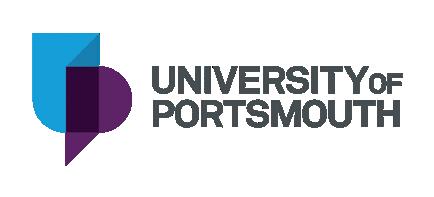

10
NATURALLY CONNECTED
us at an open event to discover more sparsholt.ac.uk/university-centre
JERSEY HIGHER EDUCATION FAIR
Skills Jersey is proud to be hosting Jersey’s Higher Education Fair for its 30th year at Fort Regent on Thursday 17th March alongside live talks from university representatives during the week. This is an excellent opportunity for you to interact and connect with Higher Education representatives from over 35 universities from across the UK and further afield. Whether it’s about kick-starting research or refining choices, you can discover a future that’s right for you.
On the day, you can speak to our Student Finance team for advice on funding, plus specific queries such as deferring and gap years. Our Careers Guidance team will be available for general career advice, and our Trackers team if you’re thinking about a higher apprenticeship on-island.
Don’t forget to check out the range of inspirational live talks from university representatives from the UK and aboard throughout the week, along with two evenings of talks that your parents can watch too. It’s the perfect opportunity to ask those burning questions that Google just can’t answer.


We look forward to welcoming you to this event and future Higher Education events.
 Jeremy Field Education Liaison Manager at Skills Jersey
Jeremy Field Education Liaison Manager at Skills Jersey
Visit: www.jerseyskillsshow.com/ higher-education-fair

11 THE 30TH EDITION OF THE
17 MARCH SPONSORED BY
DECISIONS, DECISIONS, DECISIONS...
The aim of this guide is to help anyone interested in studying for a higher education qualification (whether in the UK, on-Island, distance learning (online) or elsewhere in the world), or looking into opportunities to study whilst in employment with the support of their employer.

In this guide we have compiled information on a wide range of options in order to help you with the important decisions you have ahead. We have included case studies from individuals that have already done their research, made their decisions and wanted to share their experiences of the process. This publication is a great place to start the process, but the key to making the right decision for you is research.
Whatever your age, whatever your situation, we’re here to help and if you require any advice on your options please contact Skills Jersey on 01534 449440 to arrange a free and impartial guidance appointment.
12
WHY CHOOSE HIGHER EDUCATION?
What's it all about? University isn't just about learning, the experience will also enrich your life. You will:
Increase your knowledge – study what you love, or what you’re interested in with top experts in their fields.
Get your first true taste of independence and freedom - build self-confidence, experience all aspects of student life, broaden your horizons, meet new people and gain a qualification that’s internationally recognised. UK higher education qualifications are recognised and respected by employers and academics worldwide.
Develop the essential skills you’ll need in your career and working life – communication, organisation, timemanagement, team work, leadership, problem-solving.
Increase your earning potential – having a degree makes you more attractive to employers, you’ll have a greater choice of jobs and you’ll earn more. In 2020, a study by the Department of Education showed that graduates and postgraduates had higher employment rates than non-graduates and the average, working age graduate earned £9,500 per year more than the average non-graduate.
Experience student life – yes, you’re expected to work hard but uni is also fun. Whatever your interests, there are a huge range of clubs, societies and a diverse social life on offer. 1
ucas.com/undergraduate/student-life/why-choose-higher-education

13 1
The Higher Education Fair. This event is a great opportunity to connect with university representatives from across the UK and further afield.
APPLICATION TIMELINE 2022 2023
Research, research, research!
During this period you should be reviewing prospectuses and visiting university websites. You could also visit some of the universities you are particularly interested in applying to.
UCAS deadline is 15 January. If you do not get your application form in on time, it will be marked as late and admissions tutors are not obliged to consider you.
You may start to receive offers of places or invitations for interview. You do not need to reply to the offers you have had at this stage. Wait until you have heard from all the universities that you applied to, and do not make any snap decisions. If you are nervous about the prospect of an interview, arrange a mock interview through your school/college or Skills Jersey.
You can expect universities to have made their decisions by now. If you have heard back from all your original choices and you have not got a place you can apply again through UCAS Extra.
14
Time to think about your personal statement. You will need to work hard to create the best 47 lines that sell your skills. If you are applying to Oxford or Cambridge or for a medicine, dentistry or veterinary course, the deadline for sending in your application form is 15 October.
If you’re not sure where you want to study or have any other questions or concerns, speak to your school/ college or contact Skills Jersey for advice.
Start to complete your UCAS application form online. Find out when your school deadline is as it will be earlier than the UCAS deadline. This is so that teachers can write your all-important references.
You will have received decisions on all of your choices by now. Make sure that you have completed accommodation applications for your firm choice, if relevant.
Once you have received all the replies to your initial applications, you must reduce your choice of universities from five to two. These are known as your ‘firm’ and ‘insurance’ offers.
IB results day •
7 July & A-Level results day 18 August.
15


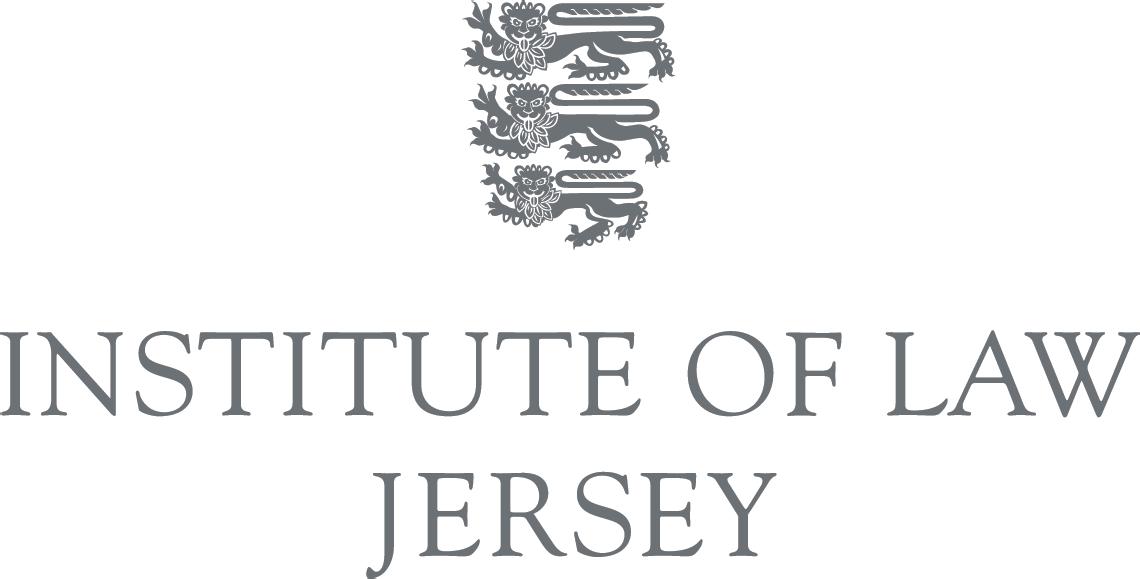
WHAT HAPPENS ON RESULTS DAY?
If your results meet the entry requirements then you will receive confirmation of your place on UCAS Track. If you have missed the grades for your first choice university, but meet the requirements for your insurance university, you are contractually obliged to go to your insurance university.

If you have decided that you do not want to go to your insurance university and want to enter Clearing instead, this cannot be done until your insurance university releases your place. This highlights the importance of making the right decisions in the first place. If you do not have the grades for either of your choices, you can go through Clearing or consider the alternatives, such as a gap year or employment.
From results day a UCAS Clearing vacancy search will become available in Track, here you can choose courses that
still have availability. You will then need to contact the university directly to see if they will offer you a place with the results you achieved. Once you have agreed a verbal offer with a university you then add the course to your UCAS application. This also counts as confirmation that you are definitely accepting their offer.
Only add a Clearing choice once you’ve had confirmation from the university that they will offer you a place. Last year 80,000 students were offered places through Clearing.
What if you get better grades than expected?
If you receive better grades than your first choice university has asked for, there will be a five day period where you will have the opportunity to ‘trade up’ to a university demanding higher grades through a service called UCAS Adjustment.
18
If you try Adjustment but don’t find any relevant courses you’ll still be able to keep your Unconditional Firm choice in Track.
Both Clearing and Adjustment require you to make the decision to go to a different university in a short period of time and when you may be under some
pressure. In previous years this has meant students ending up at universities that they didn’t know much about. We urge you to try to do as much research about your new prospective university as possible in the short timeframe.
ADVICE FOR PARENTS & GUARDIANS
The application journey
1 – Register to apply
The first thing your son or daughter will need to do is register online. They will be required to add some basic details, create a password, set security questions, and will be given a Personal ID.
2 – Complete application
Once they’re logged in, your son or daughter should fill-in any remaining personal details.
3 – Submit application
If your son or daughter is in full-time education, their school or college should complete their reference.
4 – Process application
Once your son or daughter’s application has been submitted, UCAS will process it and forward the details to their chosen universities and colleges.
5 – Decisions
If a university or college is considering offering them a place, they may invite your son or daughter to interview, audition or submit some work.
6 – Reply to offers
Applicants reply to offers, as well as interview invitations and any other requests.
7 – Confirm place
Universities and colleges will confirm conditional offers when the summer exam results are published. ‘Track’ informs applicants on whether or not they’ve been successful in obtaining a place at their firm or insurance choices.
19
Did you know: On the UCAS website there is a whole section of information dedicated to parents and guardians? ucas.com
Be extraordinary. Be you.
The average person spends a third of their life at work. So when you’re at the start of your career, it’s important to think not just about what kind of work you want to do, but also how you’ll feel doing it.
A company’s culture, whether you’re genuinely valued and compensated for your contribution, whether you’re able to be yourself and, importantly, whether you’re supported with learning opportunities, are all factors to consider before joining a workplace.
At Ogier, we pride ourselves on our bursary and wider student schemes but more than that, we know that you do your best work when you feel valued, which is why we adopt a “no fake smiles” principle.
For example, nobody should be expected to plaster on a fake smile at work if they’re not feeling well, if there are issues in their professional life that haven’t been addressed, or if they’re struggling in their personal life. No fake smiles is also about being genuinely engaged in your job and with your team, not needing to mask neurodiversity or hide any other aspect of your identity.
Of course it’s down to each individual how much of a boundary they want and need
between their professional and personal life - we just don’t want anyone to feel that they have to pretend to be someone else at work, or hide who they are, in order to succeed and progress.
Thankfully, we’re seeing a wider sea change in the world of work, where outdated ideas are being overturned: ideas like there being a single route to success, one type of person who is leadership material, or that we need to be in the office and work 9-5 every day to be productive and collaborative. All that matters is you and your ideas - we want to make sure nothing gets in your way to success.
Bursary scheme/ student opportunities
If our approach resonates with you, find out more about our bursary, wider student schemes and vacancies at www.ogier.com/careers - we’d love for you to start your career with us.
Ogier. Be extraordinary.
ADVERTORIAL
Join our team ogier.com/careers Legal Services Beijing British Virgin Islands Cayman Islands Guernsey Hong Kong Jersey London Luxembourg Shanghai Singapore Tokyo No fake smiles. You do your best work when you feel valued and happy. We take a flexible attitude to whatever helps you do a better job. Ogier. Be extraordinary.
QUALIFICATIONS EXPLAINED...
What are Level 3 qualifications?
Generally, universities require Level 3 qualifications and these are usually awarded UCAS Points. Examples of Level 3 qualifications include A-Levels, International Baccalaureate (IB), and BTEC Level 3 diplomas.
The list of recognised qualifications is vast however, the UCAS website gives you a full list of qualifications and more information on how the tariff works: ucas.com/undergraduate/what-and-where-study/entry-requirements/ucas-tariff-points
You can check how many UCAS points your qualifications are worth by using the UCAS Tariff Points calculator: ucas.com/ucas/tariff-calculator
Some universities may specify a number of UCAS points or grades required for a particular subject. If a university is asking for UCAS tariff points, it is important to check if there are any qualifications they will not accept. A university, for example, may ask for 112 UCAS tariff points but may add, “General Studies A-Level and AS qualifications and key skills qualifications will not be considered”.
AS-Levels / A-Levels
The tables here shows UCAS points awarded for some of the most common Level 3 qualifications.
22 AS-Level A-Level UCAS points A* 56 A 48 B 40 C 32 D 24 A 20 B E 16 C 12 D 10 E 6
If you would like further information on routes into higher education you can contact Skills Jersey on 01534 449440 or email skillsjersey@gov.je
BTEC
International Baccalaureate (IB)
To calculate tariff points for the IB, applicants now have to look at the points for each individual certificate (Certificate in Extended Essay, Certificates at Higher and Standard level and the Certificate in Theory of Knowledge) and then calculate a total by adding these together. It is also worth noting that the Creativity, Action, Service component does not attract tariff points. However, the experience and skills gained through this module are usually useful to write about in your personal statement.
International Baccalaureate
23 BTEC Subsidiary Diploma BTEC Diploma BTEC Extended Diploma UCAS Points D*D*D* 168 D*D*D 160 D*DD 152 DDD 144 DDM 128 D*D* DMM 112 D*D 104 DD MMM 96 DM MMP 80 MM MPP 64 D* 56 D MP PPP 48 M PP 32 P 16
IB Certificate at Standard Level IB Certificate at Higher Level IB Certificate in Extended Essay IB Certificate in Theory of Knowledge UCAS Points H7 56 H6 48 H5 32 S7 28 S6 H4 24 S5 16 S4 H3 A A 12 B B 10 C C 8 S3 D D 6 E E 4
THE PERSONAL STATEMENT – WHAT UNIVERSITIES WANT
Written by Alison Wilson, Schools and Colleges Senior Development Officer at University of Winchester
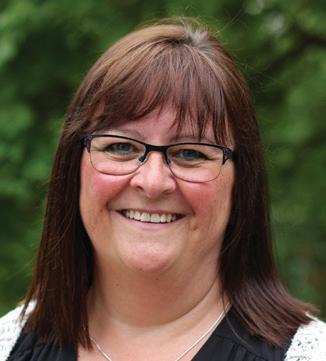
Writing a personal statement can be difficult with the hardest part often being the beginning, so if you’re struggling, get other information down first.
Where to start: Start thinking about what you know and what you’ve achieved then come back to the start later.
Word count: You have a maximum 4,000 characters including spaces (about an A4 page). Use them wisely, although grades are important they aren’t enough on their own, it’s your personal statement that helps you stand out and is likely to get you your offer or interview.
Focus on the subject you’ve chosen: Why are you interested in it? If it is a subject you’ve studied before, tell us what you enjoy and understand about it. If it’s a new subject tell us why you have picked it. At least 60% of your statement should be focused on the subject you are applying for but make sure you include something about you as well.
Super curricular activities: Talk about what you have done that is not curriculum based to show your understanding and prove you’re passionate about your subject e.g. events or optional lectures you have been to, journals you have read, websites or blogs that you follow. Make sure you emphasise your motivation and enthusiasm for it. If your degree is closely linked to a profession you should show your understanding of the role.
Work experience: Universities understand that getting work experience this year has been tough, if not impossible. We are looking for evidence in your writing that you know what the course/career is about and that you have made an informed choice to take it. Think about using MOOCs, professional body websites, online journals, books or
24
arranging a chat with a professional in that field. Also, consider current issues in your chosen subject and if it’s an NHS course make sure you talk about the core values and 6 C’s. Reflect on what you have learnt from any of these experiences, whether that is subject or environment related. You can use activities such as paid or voluntary work, school or college responsibilities to evidence transferrable skills - but don’t just write a list, make sure they are relevant and link them to the course or career you are applying for.
Summary: Finally, you should write one or two sentences as a summary, reminding the university why you’re the best student to be offered a place. If you have career ambitions tell us about them but we don’t expect to see that.
Make sure your personal statement is true to your experiences and if you are going to be interviewed you should make sure you re-read it before your interview and be prepared to expand on what you have told us.
Make sure that you reflect on your skills and experiences (don’t just describe them) and relate everything you tell us to your chosen course or career.
Good luck with your applications!
Did you know: In 2019-20 there were academic223,525 staff on full-time employedcontracts in Education.Higher
25
“Make sure your personal statement is true to your experiences and if you are going to be interviewed you should make sure you re-read it before your interview and be prepared to expand on what you have told us.”
HOW TO CHOOSE WHERE TO GO
Higher education institutions vary enormously in size, tradition, location and facilities. Some are situated in city centres, some have their own campus sites and others are in very rural environments.

Do your research
Prepare by following these simple steps:
1. List the factors that are important to you (remember this isn’t just about the course, include location, facilities, accommodation, services and the social, sporting or cultural activities available in your list of factors)
2. Prioritise this list – decide which order of importance these factors are to you
3. Research the universities
4. Compare each university to your ‘shopping list’ of important factors
5. Shortlist the universities that score highest on your ‘shopping list’
Next steps
Once you have your shortlist:
Try to visit before you decide
University open days are a great opportunity to meet lecturers, visit campuses, see accommodation and check out the area. Living in Jersey often means attending open days which can be difficult, but do not worry. If you’re planning a trip to the UK contact the university directly to arrange a convenient time to visit; chances are they will offer to show you around anyway.
26
The Talbot Campus at Bournemouth University
TO GO
HOW TO CHOOSE WHERE
But what if I can’t visit?
Information can be found on university websites. Take a look at virtual campus tours, digital prospectuses and online open days. If you have any specific questions regarding your course or accommodation then contact the university admission staff, who will be able to help you.
Things to consider
• How many students study at the university and are on your course; do you want to be one of twenty or one of two hundred or more?
• Is the university based all in one area or is it spread out over a larger area such as a city?
• You will have to travel to lectures for at least three years so look into how far the commute is.
• High entry requirements do not always mean that this is the best course for you. These requirements can be influenced by other factors (e.g. the demand for the subject and the popularity of the university).
HOW TO CHOOSE A COURSE
Look deeper. Research the course as thoroughly as you do the university. Prepare by following these simple steps to find out:
• What modules are taught on a course (this can vary greatly even for courses with the same name)
• How much contact time you will have with lecturers
• If the course is taught entirely by one faculty
• How the course is assessed
• If work experience is incorporated
• What the optional modules are
• What the teaching style is (module assignments, group work, examinations)
Did you know: 35% of students across the UK who undergraduatecompleteddegrees were awarded first class honours in 2019/20!
27
Did you know: That according to the 2020 National Student Survey, 73% of students were satisfied with the quality of their course
STUDYING IN THE UK
The UK is the most popular choice for
The UK higher education system is globally recognised as having strengths in its academic research and teaching quality. There are a wide range of universities offering a broad variety of subjects and thousands of different courses to choose from. UK degrees can often be tailored to meet your interests and can include specialised modules.
The UK government now has a teaching excellence framework (TEF) for universities. This will allow students to make more informed decisions regarding their higher education choices and for universities to be held accountable for their fees.
UCAS is the central system through which all higher education applications are submitted and processed and provides a structured, easy to use system with clear timescales for course applications.
Jersey
students travelling off-Island to study a degree.
UCAS is a helpful source of information for you as a student as well as for parents/ guardians and schools and colleges.
For Jersey students, travel links to study in the UK are readily available, accessible and affordable, with relatively short travel times when compared to travelling to study further afield. Studying in the UK provides students with a familiar cultural way of life whilst having the benefit of studying with a wide variety of international students. Upon graduating the majority of UK universities have strong alumni connections, which can be helpful for networking and future job opportunities.

28
HOW TO CHOOSE WHERE TO GO
Did you know: In 2019-20 there were 2.53 million students who chose to study at UK educationhigher institutions
Southampton
TO FIND YOUR PLACE
SEE WHERE SOLENT CAN TAKE YOU Book your open day place at www.solent.ac.uk/opendays


If you have a question about studying at Solent, or living in Southampton, there’s no one better to answer it than our current students. Start the chat at www.solent.ac.uk/chat



29
GET
CIARA DONNELLY
BSC BIOLOGICAL ANTHROPOLOGY, 3RD YEAR

UNIVERSITY OF KENT
as well as the facilities available for my course. I felt like I could see myself living here and calling it home.
What surprised you most about university life?
What do you enjoy most about university?
I enjoy living somewhere different to Jersey and the independence I have. Also, being able to study a subject I really enjoy.
What is the most challenging thing about going to university?
In first year, it was getting used to living away from home, balancing university work and social life. It doesn’t take long to get used to university life. Now in my third year it can still be challenging at times especially with the workload but it’s worth it.
Why did you choose your university?
I chose to study at the University of Kent as it had the most interesting course for my subject and offered a mixture of biological and social anthropology. When I attended the open day, I liked how green the campus was, how it was not far from the city centre
When I started it was the studying in a more independent way which was different to A-Levels, and alone time. However, I got used to it and there are always things to do.
What tips would you give a student applying to university?
Go and visit the universities you like the look of if you can and make the most of talking to lecturers and students who are already studying there. Make sure you choose a course you know you will enjoy and don’t go to a university just because you know a friend is going there. Wherever you end up you will meet amazing people and create long lasting memories.
30
CASE STUDIES BIOLOGY
JOSIE ROBINS
MCHEM CHEMISTRY WITH A YEAR IN INDUSTRY, 3RD YEAR UNIVERSITY OF SHEFFIELD
something I have learnt to adapt to.
What do you enjoy most about university?
University has given me the opportunity to learn so many new things, gain applicable skills and experience laboratory equipment and techniques I never had before. The thing I have enjoyed the most, since beginning my study, is my year in industry. It has given me a broader range of skills and allowed me to network with others in the industry. It has also helped me realise the kind of job I want to pursue, once graduating.
What is the most challenging thing about university?
For me the most challenging part of university has been stepping outside my comfort-zone. I chose to attend the University of Sheffield due to their range of laboratory equipment and the vibe I got from the city.

University class sizes surprised me, coming from a school which had no more than 20 students per class, to a university where you have 100+ students per lesson made adapting my learning style vital to allow me to succeed. The learning style is a lot more independent, which isn’t something which suits me, but is
Why did you choose your university? While applying to university I looked at non-endorsed sources. I also wanted to ensure that there were plenty of outdoor areas in the city to enjoy during my free time.
What tips would you give to a student applying to university?
The university’s YouTube videos and website are helpful, but if you look at other YouTube videos produced by students and not affiliated with the university, you get a lot more honest reviews and realistic views on the university life. I would also recommend not focusing on just the university, but also the surrounding area and what other activities are available, and what the transport links are like.
31
CASE STUDIES CHEMISTRY
CASE STUDIES
AILSA LEVERINGTON

FILM PRODUCTION AND CINEMATOGRAPHY, 3RD YEAR BOURNEMOUTH UNIVERSITY
What do you enjoy most about university?
FILM PRODUCTION aspire to work in the Film Industry, and I was aware of the great relationship BU has with many production companies. I was also a little fed up with revision and exams after my A Levels so wanted to choose a course which was fully practical. This took a lot of stress away from me as I’ve always found that I preferred practical work over essay writing or exams. It is also worth mentioning that the specific course I’ve chosen is run in Wiltshire, Salisbury, which I found a lot less intimidating than moving to a large city.
The friends I’ve made here. I never had many friends in school, but university is very different from school in that you’re able to meet like-minded people with similar aspirations. I’m very passionate about my course and have met others who I am able to connect with on this. My years here have been the happiest of my life.
What is the most challenging thing about going to university?
I’d say moving away from Jersey. Having personally never lived anywhere else before university, it seemed very daunting. Those who grew up in England will be able to visit their family whenever they’d like which isn’t a luxury those travelling from Jersey have. However, I’ve found this has prevented me from relying too heavily on my parents and other family members, pushing me to be independent and grow much more than I would have otherwise.
Why did you choose your university?
I chose this university because I
What surprised you most about university life?
I was most surprised when I realised everybody here was in the same boat. I felt like everybody would be far more organised and independent than me. However, I promise you’ll be shocked by how many people over the age of 20 still don’t know how to fry an egg or use a washing machine.
What tips would you give a student applying to university?
Most jobs care more that you have a degree than which degree it is. If you’re torn between choosing a degree which sounds fun or one which you think will look better on your CV, I really recommend choosing the one you know you’ll enjoy and spend the next three years doing something you really love.
32
HIGHER EDUCATION TOP TIPS
Skills Jersey speak to university representatives about their top piece of advice for students thinking of going to university.
University isn’t for everyone but if it’s right for you take your time researching courses and universities.
Pick a course you’ll enjoy.
Check the entry requirements are close to your predicted grades.
Know your deadlines.
If the modules don’t excite you look at a different courses and university.
Ask lots questions.of


STUDYING IN EUROPE
Studying in Europe provides different advantages to studying in the UK. It helps demonstrate you can adapt to a different culture and native language whilst being successful in your studies which is great when it comes to recruitment in the future.
Grade profiles that universities require are generally lower than in the UK. However, there is higher expectation that you are required to pass all your modules at the end of each year. There are a huge range of degree courses taught entirely in English and it is also an excellent opportunity to learn a second language.

If you are a British student who intends to enrol on courses with an EU university, you should check with the institution about arrangements that will be in place.
You should consider the following:
· get any necessary immigration permission*
· get personal healthcare insurance
· contact the Jersey Student Finance team
For the most up to date information please check gov.je and search for ‘British nationals studying in the EU’
34
HOW TO CHOOSE WHERE TO GO
Accademia di architettura Mendrisio
Do certain countries’ degree frameworks suit my abilities more than others?
• How much of the course is exam based?
• How much is based on essays compared to coursework?
• How does the marking system work?
EUROPEAN APPLICATION
The process and timeline for applying for degree programmes is different for each country and the application deadlines can vary depending upon the type of university or course.
If you are thinking about doing a degree in Europe, there are a number of universities where degree programmes are taught in English. All of these are detailed on the European University Central Application Service (EUNiCAS) website (eunicas.ie).
The website topuniversities.com is a great place to start your research and it also provides information about studying in each European country that does not have a centralised admissions system.
The following countries have centralised application systems:
Denmark (studyindenmark.dk)
Finland (topuniversities.com/where-to-study)
Ireland (topuniversities.com/where-to-study)
Netherlands (topuniversities.com/where-to-study)
Norway (studyinnorway.no)
and Sweden (topuniversities.com/where-to-study)
The key to studying in Europe is to ensure that sufficient research is done well in advance on all aspects of the course, university life and the area in which you will be living.
*As of 31 December 2020, British national students intending on staying in a country within the Schengen zone (which is most of the EU) for more than 90 days, you will require a visa.
35
Did you know: There are currently over programmesundergraduate900 taught in English across Europe
ALEXANDER HOUZÉ

MSC ARCHITECTURE, 5TH YEAR ACCADEMIA DI ARCHITETTURA MENDRISIO
What do you enjoy most about university?
My friends and colleagues. I have had the privilege to meet and engage with many extremely talented, enthusiastic and inspirational professors and students from across Europe and around the world. Their unique backgrounds and experiences have shaped who I am today on a personal note and within the architectural discourse.
What is the most challenging thing about going to university?
University life can be both a wonderfully social yet isolating experience. Learning to be independent and having the ability to manage your own time in order to meet deadlines whilst at the same time attending lectures, workshops and tutorials is a life skill that I am still trying to balance!
Why did you choose your university?
The Accademia in Switzerland occupies a privileged point of exchange between the Mediterranean world and
Central Europe, therefore attracting the presence of professors with international recognition and students from around the world. This cultural exchange promotes a healthy education that trains new professional and intellectual figures to cope with the demand of globalisation.
What surprised you most about university life?
I have been pleasantly surprised at how passionate and enthusiastic those working in the world of academia are, from my professors to the technicians who are willing to go above and beyond to support and bring out the best in every individual.
What tips would you give a student applying to university?
Understandably it is a challenging and important decision to make at such a young age, but I believe a student should be assertive and committed in whatever course they chose to study. Most importantly, one must enjoy their occupation and find reward in their work, along with sacrifice and hard work I am certain success will follow.
36
CASE STUDIES ARCHITECTURE
BARBARA ABREU
LANGUAGES AND BUSINESS STUDIES, 3RD YEAR UNIVERSIDADE DA MADEIRA
What do you enjoy most about university?
University has been a fantastic experience for me, studying and living in a completely different environment, meeting new people, and developing my knowledge and skills in different subjects has been what I have enjoyed the most during these three academic years.
What is the most challenging thing about going to university?
Being enrolled in a university has many challenges. Adapting ourselves to a new learning style, a new house or even a new Island just like me. You have days where you feel homesick or days where you think you cannot make it.
Why did you choose your university?
I have always had a dream to go live abroad and as I grew up, I would frequently visit Madeira. When I reached 18, I wanted to carry on my studies further and saw myself in the best position to do so and fulfil my dream. Applying to University in Madeira made this possible. I experience a different culture in a beautiful island while being able to take my degree that I always wanted.

What surprised you most about university life?
University life can give us many surprises which in my opinion are always good. It is a totally different academic style which can be scary. I think what surprised me the most was the fact that everyone helps and supports each other. University life is not easy, exams get harder each year, so everyone understands how you feel so everyone works together to help each other.
What tips would you give a student applying to university?
The tip that I would give a student applying for university is for them to believe in themselves. Follow your dreams and do not give up on them. It will be full of ups and downs, but it will give you so many experiences and memories that it will all compensate when you finish.
37
CASE STUDIES LANGUAGES
LORNA SMYTH
6 YEAR M.D, DOCTOR OF MEDICINE, 4TH YEAR
Poznan University of Medical Sciences (PUMS)
What do you enjoy most about university?
I love my course and being able to focus on the subjects I really enjoy versus in school where I had to study ones I wasn’t so interested in; you are constantly learning new things. I enjoy the freedom university brings; it has an incredibly social nature which is a lot of fun.
What is the most challenging thing about university?
Personally, adjusting to being away from home as I had never been away from Jersey for so long. However, once I made friends and settled into class, I was fine. I also had other challenges my friends at

university in the UK did not face – I had to learn a new language for one! I was living in a very different culture and had so much to understand about this. I also had to establish heath care and papers which allowed me to legally live in Poland which was tricky at 19, but I managed.
Why did you choose your university?
I was interested in studying abroad and did lots of research into universities outside the UK which would allow me to return home and work as a doctor. My degree is conducted entirely in English; and PUMS has a well-known English division producing good doctors who are able to work all over the world. This appealed to me, and once I visited Poznan, I loved the city and knew I wanted to study here.
Why did you choose your course?
I was lucky that I’ve known from primary school I wanted to be a doctor. I always had a fascination with science and puzzles, and I think the human body is the most complex puzzle of all, which led me naturally into studying medicine.
What tips would you give to a student applying to university?
Do your research. Especially if you are wanting to take a less traditional path for Jersey students and go abroad. There are a lot of things to be aware of when picking your degree and the country in which you want to study it; such as language, health requirements, visas and even the political status of that country.
38
CASE STUDIES MEDICINE
STUDYING IN THE REST OF THE WORLD
It’s a big old world out there and when it comes to studying abroad there are many different options and arrangements for degree level study. If you have a sense of adventure, want to stand out from the crowd or desire to have a different educational experience, then studying abroad could be for you.
Studying in another country is a unique opportunity for you to experience and become part of a different culture whilst gaining a degree. However, higher education systems can vary between countries so you need to do your research before applying. Assessment methods and course structures also vary between countries. Some allow for much greater structural flexibility allowing students to choose classes from other subjects as part of their degree. This is different to a rather rigid British system and allows students to consider how they want to structure their degree or be assessed.
A period of time spent abroad has also become a valuable addition to the CV in today’s increasingly competitive graduate employment market and could help you to stand out from the crowd.
Term dates and application dates will be different in each country. Most countries do not have a central application system which means you have to apply directly to the university, often this means a quicker decision on an offer.
Visa applications can vary a great deal, so visit the specific government website for advice and details on how to apply for a student visa. Most countries wait until after you have been accepted onto a course before confirming your visa.
Higher education varies from country to country, it could be of benefit to compare different countries’ higher education provisions for a particular subject.
39
HOW TO CHOOSE WHERE TO GO
FANCY A VARIED & EXCITING CAREER IN FINANCE?
QUALIFY WITH ICSA: THE CHARTERED GOVERNANCE INSTITUTE
The Institute’s International Finance and Administration (IFA) Level 4 qualification and its Chartered Governance Qualifying Programme (CGQP) will give you the necessary skills to work in global financial services in Jersey and abroad.
The Jersey financial sector plays a key role in the economy and employers want highly qualified employees who are trained in financial regulation and have a broad range of business knowledge and practical skills. Because local employers are committed to investing in the training and development of young financial administrators and governance professionals, you can study for IFA and CGQP whilst working.
Gaining an IFA qualification will prepare you for working in financial services, management and regulatory compliance. The qualification is valued by employers who operate globally and know the benefits of having qualified professionals with relevant regulatory knowledge. It is also recognised by regulators in Jersey, Guernsey, Isle of Man, British Virgin Islands, Cayman Islands and Seychelles, so can take you all over the world.
CGQP will provide you with knowledge of company law, finance, company compliance and administration, corporate governance, risk management, strategy and boardroom dynamics – everything you need to become a chartered professional.
‘I have been studying for IFA alongside my employment and have found that the knowledge learnt has benefitted my everyday work significantly. The qualifications are extremely transferable to different industries and have been a great benefit when applying for jobs.’
Courtney Paradise, Business Support - Development Department, Premier Gateway International
‘Our staff have the opportunity to develop their knowledge and gain an excellent foundation in their professional career through their studies. Being able to support employees on this journey and invest in their future, allows them to obtain professional qualifications as they work, and enables us to have highly skilled professionals to support our clients.’
 Katie Grant, Head of Learning & HR Business Partner, Intertrust Group
Katie Grant, Head of Learning & HR Business Partner, Intertrust Group
40
advertorial
Advance your career
Want a career that will set you on the fast track to working with the board?
Our unique portfolio of internationally recognised qualifications develop the skills and understanding of those working in governance across the private, public and not-for-profit sectors.
International Finance and Administration (IFA)
Develop necessary skills in the offshore finance environment and deepen your understanding of global accounting and taxation.
Chartered Governance Qualifying Programme




Gain the knowledge, skills, and experience to take on a job in governance.
The programme is suitable for those looking to fast track into a new career.
To explore our qualifications and register, visit cgi.org.uk/guernsey-qualify
41
HOW TO CHOOSE WHERE TO GO
STUDYING ON-ISLAND
The courses offered on-island are all accredited by renowned UK universities and are fully recognised anywhere in the world.
Leaving the Island to study for a number of years does not suit everyone and, as such, a number of students choose to stay and study in Jersey.
It usually costs less too with tuition fees being cheaper and the opportunity to live at home.
Also, if you plan to have a career in Jersey then the work experience you undertake as part of your course can give you an excellent opportunity to network with Jersey professionals, making those all-important contacts.
42
University College Jersey and The Institute of Law tell us about the advantages of studying on Island:
University College Jersey
Our degree programmes either include significant periods of work placement or allow for part-time study alongside existing employment. With our links to over 170 local employers from a range of industries, students have access to valuable work experience allowing them to develop their skills and build a professional network from which to springboard into employment upon graduation. In fact, last year, 9/10 students had progressed onto employment or further study within 2 months of graduating. Lecturers are drawn from industry, as well as academia, which means that the learning is always current and relevant.
Not only does our portfolio of courses continue to grow, with new programmes in Computing, Sport and Social Work launched in 2019, but so does the sense of community that comes with an on-Island degree at UCJ. We have the largest body of HE students on the island yet have still managed to maintain a college atmosphere – the UCJ experience is one of independence and autonomy in an adult learning environment, while feeling valued and part of a caring and supportive community. Maybe it is this balance that contributes to our 99% pass rate and the fact that 85% of our class of
2021 graduated with a 1st or 2:1 (National average is 70%).
The Institute of Law
At the Institute of Law students’ study for the prestigious University of London law degree, while also benefitting from a truly personalised learning experience. We offer small classes, delivered by worldleading professors in a friendly and supportive environment, with tutors on hand to help every step of the way. Each student is given additional one-to-one support from a personal tutor, who acts as a single point of contact providing important help and guidance during the transition to higher education. We also offer the opportunity to gain practical experience through our close connections with the vibrant local practising community, via our mentoring and work experience schemes. With classes held mostly in the evenings and weekends, students have the unique opportunity not only to work in one of the world’s leading off-shore legal and financial centres, but also to earn while they learn to support their studies.
43
REBECCA DE FREITAS VIBERTS LAW FIRM

What attracted you to a career in law? I loved the idea of having a varied, interesting, fast-paced career - whilst being able to use my skillset to help people.
How has your career developed since being with Viberts?
My legal career has flourished at Viberts. I started as a Legal Assistant with no prior experience, before going on to complete my studies in the UK (including a law degree, Legal Practice Certificate and Masters) - which Viberts supported throughout. I am now undertaking a training contract with the firm to qualify as an English Solicitor in March 2023. I started my journey with Viberts as a school-leaver and will soon be a qualified lawyer!
What 3 attributes do you need for your job? There are many attributes required for my role. The first being communication – both with clients and colleagues.
Clear and effective communication is key in delivering the best service possible. Empathy is also essential. Often when we meet clients they are going through a difficult period, it is important to understand and appreciate the thoughts and feelings that surround our discussions. Finally, team working skills - I am lucky to work with brilliant colleagues. We support one another on matters to ensure that we achieve the best possible outcomes for our clients.
What career tip would you give your younger self?
Work hard, make the most of any opportunities to learn new skills and keep an open mind where you want to end up within the profession.
Viberts is a full-service law firm dedicated to providing outstanding legal advice and client service, both in Jersey and internationally.
We’re always on the lookout for the next generation of talent. To find out more about our bursary scheme visit: viberts.com/bursary
44
CASE STUDIES TRAINEE ENGLISH SOLICITOR advertorial
SCAN HERE TO ORDER YOUR DIGITAL PROSPECTUS

THIS COULD BE YOUR STORY
We’ll inspire, challenge and support you throughout your degree. Learn from academics whose research impacts some of our world’s greatest issues. From tackling poverty using drones to improving cancer survival rates.
JOIN US FOR AN OPEN DAY
+ Virtual First Look - 14 May

Wherever you are, join us for live sessions to learn about applying, student life, the city, our campuses, careers and support.
+ On Campus Open Days
2 & 3 July, 10 September, 8 & 9 October
The Open Day is your chance to visit us, on campus! Get a real feel for the University and imagine yourself living and learning here.
Top 15 UK University Complete University Guide 2022
Over 350 courses from Accounting and Finance to Zoology. Register here: www.southampton.ac.uk/upcomingevents
CASE STUDIES
CORPORATE ADMINISTRATOR

MEET...
RACHEL

CORPORATE ADMINISTRATOR AZTEC GROUP
What do you do on an average day?

The good thing about Corporate Services is it is very varied. A typical working day involves keeping clients informed of filing requirements, regulatory deadlines, arranging and holding board meetings, and updating the share register. It’s fast-paced with a lots of different client structures to learn about and work with –no two days are the same!
What professional training have you done and what support have you had?
I am currently studying towards completing the IFA 5 stage of the ICSA qualification and our in-house learning and development team, the Aztec Academy, has been incredible at supporting and guiding me and others through our qualifications.
I recently sat the ICSA IFA 5 exam on trust and company administration and achieved the best paper worldwide for that sitting. To say I was shocked is an understatement! My aim now is to keep working towards achieving chartered status.
46
Thanks to Aztec’s approach to flexible working, I am able to dedicate the time needed to my studies. We get a number of study days to take off and there’s great flexibility for everyone studying for their exams, enabling us to balance that time against our day jobs.
How did you find joining a new company in the middle of lockdown?
It was a challenging time to start a new job given that the pandemic started so soon afterwards, and we went into lockdown pretty quickly. My team and everyone in Aztec were amazing and immediately made me feel welcome and at home.
Aztec is known for its friendly culture and even working from home I was able to meet people online using Microsoft Teams and attend virtual social events which made a big difference in feeling part of the team. Although, I must admit, I am very glad we are able to go back to face-to-face events and can’t wait for the summer when I will get the chance to meet people across offices in person in Barcelona for Aztecfest!
What is the next step in your career journey?
Ultimately, my aim is to manage my own portfolio of clients and lead my own team. The Aztec Academy provides training on many of the key skills we’ll need to progress, so I am taking full advantage of those.
If I think back to when I joined Aztec in 2019, our team has more than doubled in size, and is still growing which gives me plenty of opportunity for growth and development into new roles.
THE AZTEC ACADEMY
Bright training for the brightest talent
From the very beginning of your career with the Aztec Group, the Aztec Academy is there to support. From the Induction week – a four-day programme designed to equip every new joiner with the knowledge and skills to start confidently in their role – to professional qualification and development support, the Academy provides all the tools to help you succeed.
The Group’s in-house learning and development team is known for designing and delivering top-quality learning and pushing the boundaries of what a learning and development function should look like.
Ashley Cotrel, Training and Development Manager

commented: “At the Aztec Group we believe that nurturing and retaining the best talent requires investment in our people. Providing study leave, covering the fees to complete professional qualifications, and providing fun, interactive e-learning and face-to-face training are just some of the ways we do this.
“For those just starting their career in financial services we have a whole host of training to get you up to speed with the latest industry trends and, when you start your qualifications, you will be joined by a cohort of fellow trainees - so you can complete your training together!”
47
advertorial
STUDY WHILE YOU BECOME AN ACCOUNTANT
If you are still considering your options for the future, KPMG in the Crown Dependencies could have the perfect solution for you. With us, you can gain paid work experience, achieve a professional ACCA qualification and an undergraduate degree in Applied Accountancy to become a chartered accountant, all within three years. Leaving the island to pursue further education isn’t the only option to gain a degree and professional training to establish a successful and fulfilling career.

By enrolling on the training programme with our trusted training partner, BPP, you will be fully supported by their team of experienced tutors as you take the first steps to become a qualified accountant. Included in your Professional Qualification training with BPP will be an exciting ‘Digital Accountant’ programme where you will learn the latest in data analytics, ensuring you become the best in the field as you qualify.
Alongside your professional training, you can opt-in to study a BSC (Hons) degree in Applied Accountancy with Oxford Brookes University. The degree will allow you to translate the skills you have gained in your professional accountancy studies into a Research and analysis project. A mentor will guide you through the written project and, as you build experience, applying your knowledge learnt in your degree will give you a foundation to become skilled working with high-profile clients.
Making the move to university can be costly with high tuition fees, but if you choose to enrol on a trainee scheme with KPMG in the Crown Dependencies, you can continue to study while being in fulltime employment all on your doorstep. Also, you shouldn’t fear missing out on making new friends. With KPMG, there is an opportunity to connect with other students and maintain a thriving social life as you continue to embrace life on the island.
While you will begin your training in Jersey, the dynamic and international reach KPMG in the Crown Dependencies offers will enable you to connect and build relationships with clients across the globe. As you continue to learn and develop at KPMG, upon graduating and becoming newly qualified, you will be able to maximise your opportunities and apply to become Assistant Manager within five years of leaving secondary education. Choosing to combine both your Professional Qualification training with a degree will give you the perfect springboard as you enter the world of accountancy.
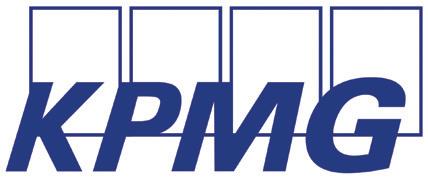
48 advertorial
ANDREW QUINN, MANAGING PARTNER, KPMG IN THE CROWN DEPENDENCIES
Launch your career with KPMG

Build the foundations of your future
KPMG is a place where anything is possible, where you’ll enjoy diverse challenges and share your ideas with other bright minds to help to deliver innovative approaches.


Whether you join us in Audit, Tax, Advisory or Business Services, you’ll find yourself in an intellectually stimulating environment. One where disruptive technologies are embraced. One where collaboration is a way of life. One where your contribution can make a real difference to our colleagues, clients and communities.

Scan the QR code to find out more:

© 2022 KPMG i n the Cro w n Dependenc i e s i s the bu si ne ss name of a group of J er s e y and Isl e of M an li m i ted li ab ili t y entit i e s each of w h i ch are member f i rm s of the KPMG g l oba l organ is at i on of i ndependent member f i rm s aff ili ated wi th KPM G I nternat i ona l Li m i ted , a pr iv ate E ng lis h compan y li m i ted b y guarantee . All r i ght s re s er v ed Or v is it t iny ur l. c om/ KPMGTraineeCar eer s
HIGHER & DEGREE LEVEL APPRENTICESHIPS
What are they?
These are a relatively new type of apprenticeship.
A higher apprenticeship usually involves studying for a Level 4 qualification, such as a foundation degree. A degree apprenticeship will involve degree level study. You will need to be accepted by a university to study for your course and the university will give you details of their entry requirements. The apprenticeship may involve studying for your course in Jersey or through a distance or blended learning programme with a UK university.
What is involved?
Degree and higher apprenticeships are not the same as a sandwich degree or a work placement. They involve working for a company whilst studying for a university level qualification on a parttime basis. This means that it may take longer to complete your course than if you studied it full-time.
As your employer will expect you to combine a full-time job and part-time study over a number of years, you will need to be very motivated to complete one of these apprenticeships. However, as an employee as well as a student, you will be paid a salary. This means you will be earning and gaining valuable experience and skills at the same time as working towards your university qualification.
What support will I get?
If you take up a degree or higher apprenticeship, you will be able to access a lot of support. Trackers Apprenticeship Programme will provide you with a mentor to support you, your employer may also provide someone to help you develop in your role and study on your course, plus you will have support from your university.
Higher and degree Apprenticeships in Jersey
Trackers Apprenticeship Programme is working with local employers as well as local and UK university centres to develop higher and degree level apprenticeships for Jersey. Apprenticeships that are currently being developed are civil engineering, digital and technology solutions and hospitality management.
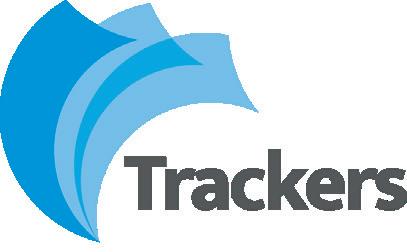
More information
For more information about the degree and higher apprenticeships that are currently being developed in Jersey and how they are funded visit gov.je/trackers or email trackers@gov.je
50
CASE STUDIES APPRENTICE STRUCTURAL ENGINEER
ALEX HEYES

B-ENG CIVIL ENGINEERING
Trainee Structural Engineer at RGA Consulting Engineers Ltd
Why did you decide to do an apprenticeship over going to university?
I chose an apprenticeship as it is allowing me to study engineering whilst also working in the local industry. Completing both allows me to gain internationally recognised qualifications through the Institution of Civil Engineers (ICE), as I aim towards Chartership level.
What have been the highlights of your apprenticeship?
Being nominated for JeCC Star of the Future was an immense highlight at the beginning of my career. Following on from that, completing my HNC after being awarded a scholarship from the ICE. Becoming a committee member for the Channel Islands Group of Professional Engineers (CIGPE). More recently, gaining my first international qualification becoming an EngTech member of the ICE.
What elements have you found the most challenging? Time management was challenging at the beginning of the course. Balancing academic studies, my work, CIGPE, and social life. But once I had a solid routine in place it then became much easier to largely keep track of it all.
How have you found the experience of balancing work, study and life?
Challenging from the outset. Organising how you spend your day and breaking down how much time to spend on each area is a key skill. Especially being able to adapt before exams or during busy periods at work.
How have Trackers mentors helped to support you?
Reflecting on my progress with my Trackers mentor is truly useful, especially on mistakes I make and how to better myself. Whether it be my academic work, my actual work, or general personal qualities, my mentor has guided me to keep myself on track.
What are the next career steps for you? Career aspirations?
After my degree has finished, I can apply to become an Incorporated member of ICE. I still intend to continue my academic studies by applying for a postgraduate course or possibly a research degree. I aim to have achieved ICE Chartership by 2030.
Do you have any advice for future apprentices?
Get stuck in. End of the day, you’re the only driver behind your own career.
51
CIVIL ENGINEERING HNC & B-ENG APPRENTICESHIP
Thinking about a career in Civil Engineering?
The opportunities are endless, including project management, design and planning, structural engineering, geotechnical engineering and transport engineering to name a few.

Did you know you can study and qualify to be a Civil Engineer here in Jersey?
In partnership with Trackers Apprenticeship Programme, University College Jersey and CIGPE (The Channel Islands Group of Professional Engineers), you can pursue your chosen career, working and studying, once you have finished school.
52
Pathways to qualifying
HNC Higher Civil Engineering Apprenticeship
You can join this apprenticeship programme when you are 18 or over and have completed your A-Levels, or an equivalent Level 3 relevant subject.* A Level 3 qualification including Maths and/or Physical Science is desirable. You must be working in a suitable role in the Civil Engineering industry and be prepared to commit to two years of study one day per week, plus extra hours for assignments and revision. The course fees are covered by your employer and the Government of Jersey. You will gain HNC qualification from LSBU, through University College Jersey.
B-Eng Degree Civil Engineering Apprenticeship**
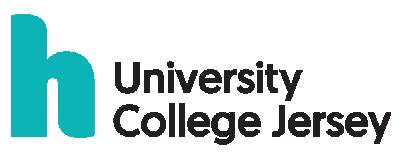
You can join this apprenticeship programme when you have completed a HNC, HND or relevant Level 4 subject.* You must be working in a suitable role in the Civil Engineering industry and be prepared to commit to two years of study one day and one evening per week, plus extra hours for assignments and revision. The course fees are covered by your employer and the Government of Jersey. You will gain a B-Eng (Hons) Degree from LSBU, through University College Jersey.
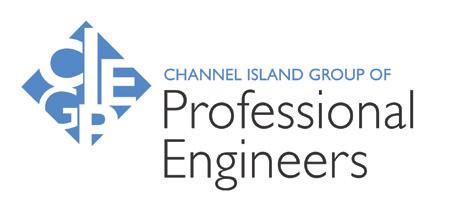
Following your degree, you can study all the way to masters level and even gain your chartered status, right here in Jersey. Interested? Contact Trackers today to find out more:
T 01534 449180 | E Trackers@gov.je

*Be prepared to commit to three years of study one day per week
**Subject to validation.
53
“The opportunities are endless, including project management, design and planning, structural engineering, geotechnical engineering and transport engineering to name a few.”
EARN WHILST YOU LEARN
HOW YOU CAN GAIN A DEGREE WHILST STAYING ON ISLAND
Going on to higher education has always been synonymous with heading to UK Universities, if not further afield but the Garenne Construction Group believe that you should not have to leave the Island for further education.
Going on to higher education has always been synonymous with heading to UK Universities, if not further afield but the Garenne Construction Group believe that you should not have to leave the Island for further education.
The built environment continues to gain momentum and our Executive Director Marc Burton MBE believes that there will be significant opportunities for young people to gain valuable experience whilst working towards apprenticeships and qualifications including Degree courses over the next five to ten years.

Marc explains, “Judging from the approved Government Plan and other strategic pipelines there is going to be significant investment in the Island’s infrastructure and we want to be ready to ensure there are locally trained and skilled staff available to fulfil the industries opportunities. As a Group, we have always invested in the development of our staff and we currently have 18 apprentices studying vocational courses along with 7 students on degree courses.”
Marc introduced Design, Engineer, Construct! (DEC!) to the Island in September 2018 and Garenne sponsored the pilot course and continue to be the ‘school adopter’ at Le Rocquier and in partnership with Skills Jersey, with the introductory starter
course up to GSCE equivalent Level 2 are now available in four out of nine of the Island’s secondary schools. DEC! Level 3 is now available at Highlands College and Hautlieu as an A-Level equivalent and we are very proud to be the College adopter at Highlands College.
We also maintain a strong relationship with Highlands College through our partnership arrangement with the Construction and Engineering Faculty, who continue to offer several industry-relevant qualifications along with the prospect of adding further courses to meet the industry’s needs. There are around 130 different roles available within the Group, from traditional site-based trades including plumbing, electricians, engineering, mechanics and stonemasons and management-based roles in site/project management, engineering, commercial management, facilities management to more technology-based roles such as BIM managers and CAD designers.
There are fantastic career opportunities within the built environment that are waiting to be explored, along with the opportunity to earn whilst you learn. You will gain valuable experience whilst gaining a qualification so why not increase your prospects of having an amazing, fulfilling job at the end whilst receiving financial support for your education from your employer?
54
advertorial
Earn whilst you study in Jersey.
The Garenne Construction Group is a leading Channel Islands’ business with a long tradition of investment in local construction. With over 900 people working across Jersey, Guernsey and the UK we are always looking for talented individuals to join our team. We have opportunities to earn whilst you learn through apprenticeships, vocational and degree courses along with working in a great environment!
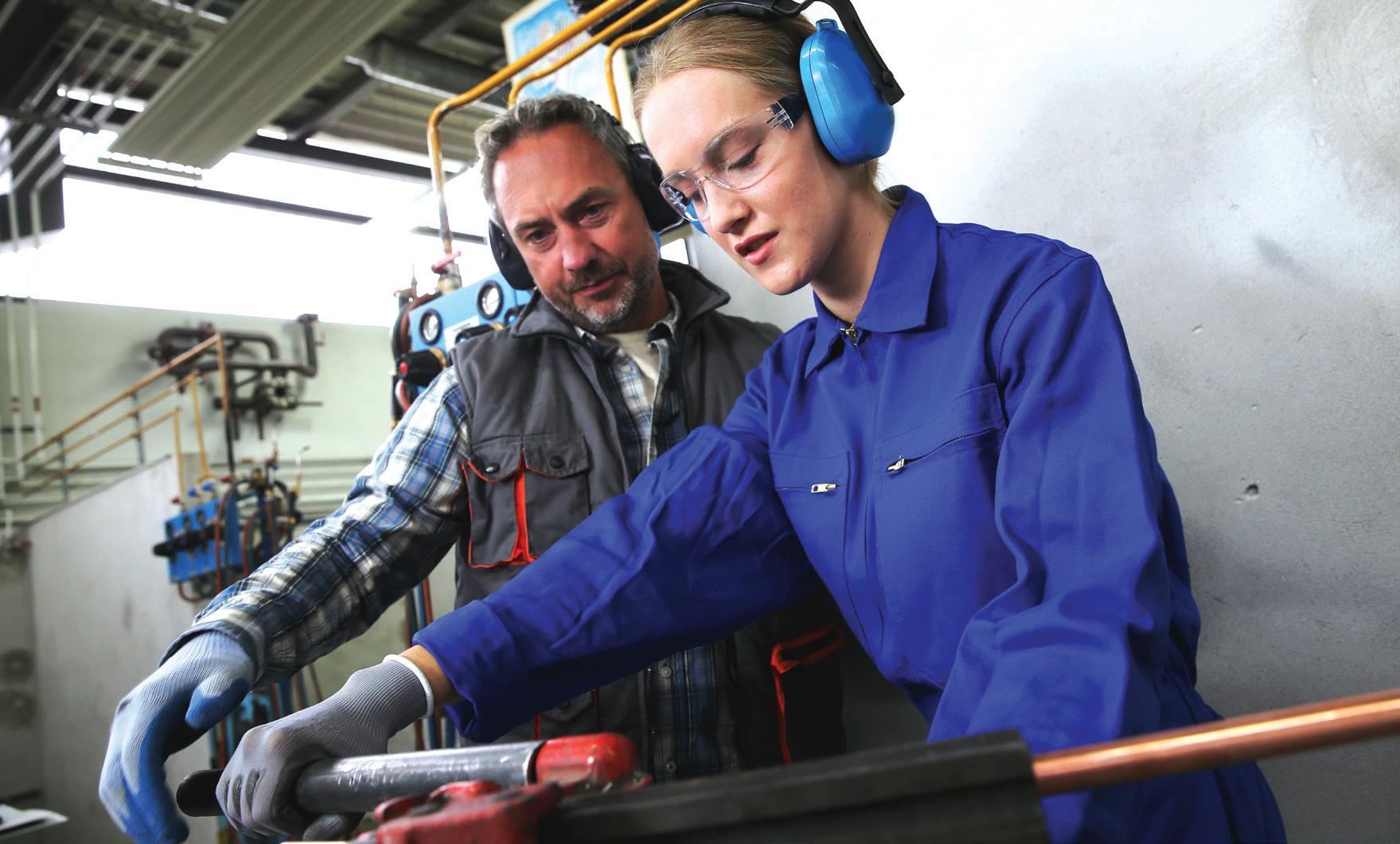
Construction - A career for everyone.
If you are interested we can offer you a career path that is exciting, meaningful and fulfilling. Contact us on careers@garenne.je or 01534 726420.
■ CAD Design
■ Marine/Civil Engineering
■ Plumbing
■ Electricians
■ Project Management
■ Quantity Surveying
■ Site Management
■ Facilities Management
■ Mechanical Engineering
■ Design Management
And much more...












www.jtglobal.com Follow us, search @JTsocial
Head in the cloud?
Our award winning talent programme will provide you with a unique experience within the latest areas of digital technology and innovation.

You will gain a broad knowledge of our industry through a number of work placements across our global business and support from dedicated mentors throughout your fast track development.
Why join JT?
✔ Excellent career development opportunities

✔ Strong sense of teamwork
✔ Competitive remuneration packages
✔ Fully funded professional qualifications


✔ Opportunities to work abroad
What we’re looking for
JT are looking for students with a positive attitude and a personal drive to make a difference. If that sounds like you, head to www.jtglobal.com/careers to apply.

DISTANCE LEARNING & BLENDED LEARNING DEGREES
If you are interested in studying a degree, but do not want to study it in the conventional way it may be worth looking at distance or blended learning degrees.
Distance learning involves studying a degree from a recognised university or college without physically attending the institution for the whole of the course.
Blended learning degrees involve a combination of online learning and face-to-face learning, and can give you the flexibility of distance learning, with some face-to-face learning of traditional degrees.

The amount of time you study at university and how that time is organised can vary for blended degree study e.g. one course may include blocks of study at the university and another may involve weekends throughout the course. It is important that you check this out before enrolling on a blended learning degree programme.
If you are considering studying your degree via a distance or blended learning programme, you should think about issues such as:
• How much face-to-face contact would I like to have with other students and tutors?
• If face-to-face study is part of the programme, what will the cost of travel/ accommodation be?
• Does the university provide accommodation if necessary or will I need to organise this?
• What support and resources does the university provide when I am studying from home?
• What resources/equipment will I need to provide, for example a quiet place to study, access to the internet and a laptop/ computer/tablet etc?
58
Support
If you study a part of your degree or the whole of it via distance learning you will have regular support from your tutor and contact from fellow students through online forums, e-mail, phone and virtual conferencing.
Your university may also use video and audio study materials as well as seminars via webinars. The webinar may be prerecorded or may take place in ‘real time’. You will need to have reliable internet access and a computer that you can work from. Assignments are usually submitted via email or online.
Motivation
Distance learning and blended learning require determination, motivation and self-discipline. Often the degree will take longer as you are studying part-time and often will require study in the evenings or weekends if you are working. However, completing a degree whilst in work demonstrates commitment to further your career and employers may view this in a positive light.
Here are some pros/cons
It is important to weigh up the pros and cons of each study option to see which option suits you.
Distance or blended learning programmes can be appealing for people who would like to do a degree without leaving their job or having to live away from home for long periods.
As these study options do not involve full-time residential study at a university, your ‘student experience’ may be different to a student who is studying their degree at the university on a fulltime, residential basis. For example, you may not have access to the full range of student societies etc.
Distance/blended learning degrees often have more flexible study periods which means you can have a larger say over the pace you study at. This can be useful when trying to balance work commitments or family life.
The costs associated with this type of study are usually lower than full-time residential study; however, subject options might be limited to degrees where you do not need access to specialist equipment.
Applying
If you are considering applying for a distance or blended learning course UCAS advises applying directly to the university or college as UCAS doesn’t offer a central admissions service for these programmes.
59
BUDGETING: OUR TOP TIPS

Budgeting for university can be tough. It’s worth thinking about ways to make your money last longer for the whole year.

Here are some of our top tips:
Don't forget to budget
Budgeting is key when it comes to keeping tabs on your money, so you know exactly what's coming in and going out.
The UCAS website has some great resources on creating a budget and even has a budget calculator to give you a rough idea of what your key income and outgoings might look like. ucas.com/finance/managing-money






Trusts and bursaries





We have some fantastic trusts and bursaries available in Jersey that offer extra funding support for students. We highly recommend looking at ones that fit your course and applying for them! The bonus is that you can apply for these alongside your Student Finance funding.
A big benefit is that most providers will often offer extra support through work experience, career advice and future work opportunities. Just search for ‘trusts and bursaries’ on www.gov.je



Make your money go further
Getting an NUS card (now called a Totum card) is a must! It gives you access to loads of student discounts and deals from food and travel to clothes and plenty more.



www.totum.com
Read the small print!
Check through the paperwork on things like your phone contract or bills as they may not provide the best deal. Especially when you arrive back on-island, you don’t want to be paying in excess for things like data.
TV licence
One thing you may not realise, is that most students will need a TV licence. Check the UK’s TV Licencing website. Your university’s online forums may also have advice from previous students.











60
STUDENT FINANCE DEADLINE DATES
Skills Jersey’s Student Finance team assess and administer higher education applications for funding. We offer a grant for those wishing to study for a degree, be it on or off-Island.

Students can apply for this grant to help towards university fees and living costs. The grant is means-tested and the amount that you will receive is based on household income. We take into account parents and/ or their partner’s or student’s income, depending on the family situation.
Application timeline
January 2022
Application goes live gov.je/applyforstudentfinance
June 2022
Deadline for Income Statement


Forms to be sent to Student Finance
September / October 2022
University starts
March 2022
First deadline for Student Finance applications for the next academic year
August 2022
Students are required to provide a copy of their results and unconditional offer letter to Student Finance
61
THINKING ABOUT A GAP YEAR?
So you’ve decided to take a gap year! In normal circumstances, gap years would involve travelling the world, volunteering abroad, or gaining work experience. But what is there to do during a gap year... Let’s explore some options.
Travelling abroad
Working or joining a volunteer programme is a popular choice for a gap year. However, due to current circumstances, this may not be the most feasible option in some destinations. Be sure to keep yourself up-to-date by checking the latest travel news and government advice locally and in your intended destination country.
Placement year
It’s worth considering taking a degree with a placement year if travelling aboard is what you want to do. Placement years normally take place in the 2nd or 3rd year of your degree, so this would mean not taking a gap year until 2023 or 2024. It also gives you the opportunity to work and study towards your degree, all whilst seeing another part of the world. Win, win!

Internships, work experience and volunteering
Unique, real-world experience from volunteering to interning sets you apart from other students. Plus, universities show preference to students who display commitment, passion, and perseverance to something bigger than themselves. However, the availability of opportunities may now be limited. The effects that Coronavirus has had on this will depend on the industry and company to which you apply. So, it would pay to start your research now.
Try an online course
With the rise of online courses, we are now seeing more available. There’s even some from the world’s top universities! These courses are mainly free and it’s
62
a great opportunity to add something different to talk about in your personal statement and university interview.
Learn a new language
We live in an increasingly global society and the benefit of learning a new language could give you the edge in future careers, expand the opportunities available to you and boost your CV. Now is a perfect time to start! Make sure to check universities as some have started offering online language courses.

Save money for university
One advantage to working locally (or abroad) during your gap year is earning money that can be used to fund your life as a student. It’s a great way to give you a taste of being self-sufficient too.
A gap year is what you make it!
A gap year can help you get into university, help you get a job, find yourself, or see the world. The gap year benefits are endless!
Apply and defer?
If you’re planning a gap year you can still apply to university but defer your entry. This means you can still access the support provided by your school/college during the application process.
Confirming your place for the following year can take a huge weight off your shoulders whilst enjoying your gap year.
SECOND THOUGHTS ON YOUR PLANS?
Plans change for many different reasons. If something doesn’t feel right it’s ok to change plans at any stage. It is really important to listen to yourself and speak up.
Our top tips:
• Don’t be afraid to talk through your ideas or thoughts – make sure you get advice from your careers teacher, Skills Jersey careers advisers, friends, family or employers.
• Make sure you know all options available to you. There is always a solution.
To be eligible for funding from Student Finance there are residency requirements you need to meet. If planning on travelling, please contact the Student Finance to ensure you will still meet this criteria.
• Worried about Student Finance? Whatever your situation, support and advice is on offer from Student Finance on last minute changes.
63
DIRECTORY
Advice & Guidance
Skills Jersey gov.je/skillsjersey

Open Days opendays.com
Prospects prospects.ac.uk
Student Finance gov.je/studentfinance
UCAS ucas.com
Discover Uni discoveruni.gov.uk
Gap Year gapyear.com
On-Island
Highlands College highlands.ac.uk/university-college/ Institute of Law Jersey lawinstitute.ac.je
Bachelor of Nursing Degree Programme
Contact Denise Worley on 01534 444210 or email d.worley@health.gov.je
Jersey Graduate Teacher Training Programme
Contact Alison Lewis on 01534 449483 or email A.lewis2@gov.je
Distance Learning
The Open University open.ac.uk
A large number of institutions run their own online/ distance learning degrees. For further information contact the university directly.
Worldwide & Europe
Student World (Worldwide) thestudentworld.com
Eunicas (Europe) eunicas.com
Education in Canada educanada.ca
Education USA educationusa.info
Fulbright Commission (USA) fulbright.org.uk
Study Options (Australia and New Zealand) studyoptions.com
01534 449440
gov.je/skillsjersey
Facebook: @skillsjersey
Twitter: @skills_jersey
Instagram: @skillsjersey
64




Discover your degree of difference at an Open Day. Discover your degree of difference at an Open Day.
Degrees of difference
Are you ready to start your BU story?
Whether the change you want to make to the world is big or small, we can help you make it a reality. With a tailored experience that suits you, isn’t it time you discovered your degree of difference?
Book now: www.bournemouth.ac.uk/opendays

Book now: www.bournemouth.ac.uk/opendays 10954

Day.

Careers in Finance: Bitesize Masterclasses Refreshed Careers Brochure Books (education/research) @jerseyfinance Whatever your future career plans are, we have a wide range of available resources to help you get started. Visit our online hub at jerseyfinance.je/working-in-finance. Get Future Ready jerseyfinance.je /careers-in-finance jerseyfinance.je /working-in-finance jerseyfinance.je /careers-in-the-finance-industry jerseyfinance.je /podcasts Professional Testimonials Careers Ready Podcasts /company/jersey-finance /JerseyFinanceOfficial With Our Resource Hub











































 Katie Grant, Head of Learning & HR Business Partner, Intertrust Group
Katie Grant, Head of Learning & HR Business Partner, Intertrust Group








































































